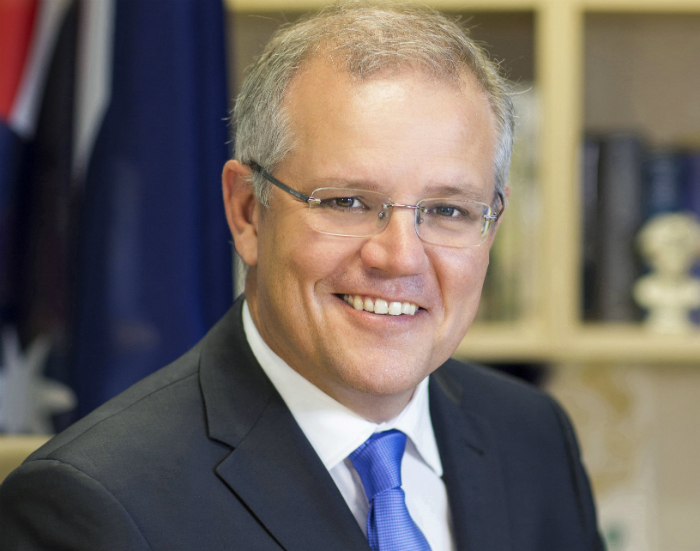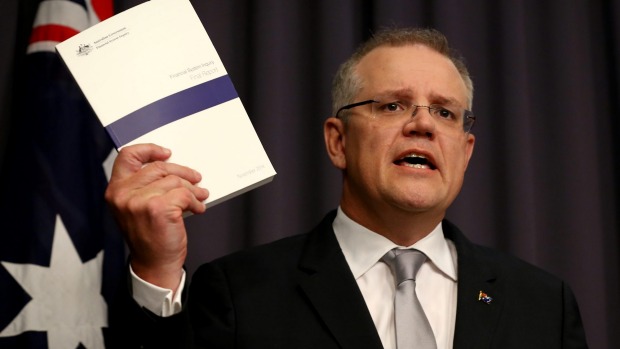
The Printing Industries Association of Australia (PIAA) has responded to the new federal budget positively, voicing support for the extension of the instant asset write off for small business, the Skilling Australia Fund and income tax reduction.
Andrew Macaulay, CEO of the PIAA says, “There is an immediate benefit to small businesses and there are larger benefits to come in subsequent years. Printing Industries is pleased that the government listened and delivered on the instant asset write off and in education funding.”
Along with reducing taxes, the federal government is also seeking to sort out tax avoidance, with $319m being invested with ATO so it can investigate phoenix business and the black economy.
Phoenix operations – where a business closes one day and opens the next in the same premises with the same owners, same kit and the same phone numbers – are an issue for the industry, as they effectively pass their debts onto everyone else. The government has said it will introduce new phoenixing offences in law, along with additional phoenix enforcement to expand liability and limit escape avenues for guilty business owners.
Three million small businesses are also expected to be impacted by a streamlining of GST reporting, predicted to save them an average of $590 each year.
The instant asset write-off for equipment purchases less than $20,000, a policy from last year’s budget, has now been extended for the coming financial year.
[Related: AMWU proposes print award change]
Macaulay says, “I have spoken with Treasurer Scott Morrison and Michael McCormack, the Minister for Small Business. There are some good things in the budget for the print industry.
“The continuation of the $20,000 instant asset write off for small businesses is welcomed, we would have liked to have seen that go on for longer but the PIAA did encourage it to continue and it has been extended, they said they were going to end it.”
Taxpayers earning up to $125,000 will be eligible for the Low and Middle Income Tax Offset over the next four years, worth up to $530 per year. Individuals earning between $48,000 and $90,000 will be able to reap the maximum offset of $530 annually, or $10.19 a week. Others with wages more than $90,000 will see their tax discount reduced at 1.5c for every dollar earned over $90,000 and those earning less than $37,000 will only be eligible for a maximum offset of $200.
Tax rebates will eventually see a flat rate of 32.5 per cent for everyone earning between $40,000-$200,000.
Macaulay says, “In the print and packaging sector, employees will benefit from the $530 income tax write off, especially as we are the largest employer in Australian manufacturing.
“There is also a lot of movement in the industry, with people going between jobs. Different employers have different super funds. The government is prohibiting exit fees on super funds and employees will benefit significantly from this, they will be able to consolidate their supers.
[Related: PIAA slams ACTU enterprising]
“For education, $250m has been allocated to the Skilling Australian Fund (SAF) and we will be pursuing some for print training.”
The SAF funding is aimed to go towards supporting apprentices and traineeships, with states being offered around $1.2bn for the next four years and an additional $50m being available for them if they sign up to the new National Partnership on VET before June 7. In the year since the government introduced the fund, no states have signed up.
The opposition has criticised the Coalition’s budget on this point however, with Shadow Treasurer Chris Bowen saying there are $270m in new cuts to Tafe funding.
Businesses will now also be able to receive up to $10,000 in wage subsidies for employing workers over the age of 50. Around $189.7m is being given to help job seekers over the age of 45 adapt to the job market, with initiatives with different aims such as developing digital skills.
The R+D Tax Incentive scheme is being tightened up, but the new rules will mainly affect businesses with turnovers higher than $20m.
Andy Berry, managing director of Ricoh Australia has focused on technology initiatives within the federal budget. He says, “The government’s focus on investment in technology is to be commended but businesses will individually need to consider the human factor. After all, failure to engage employees in an age of digital disruption will delay achievement of business goals and may jettison them altogether.”
Comment below to have your say on this story.
If you have a news story or tip-off, get in touch at editorial@sprinter.com.au.
Sign up to the Sprinter newsletter



